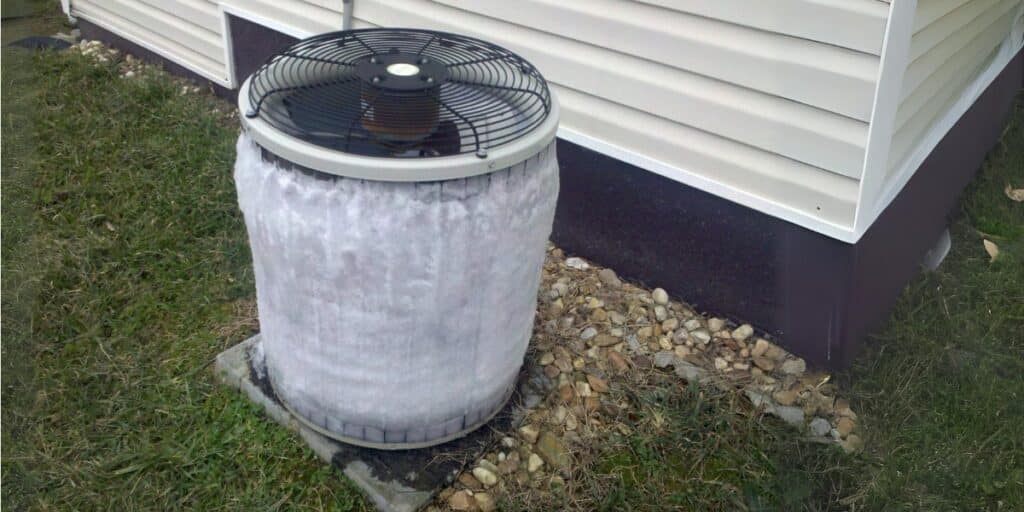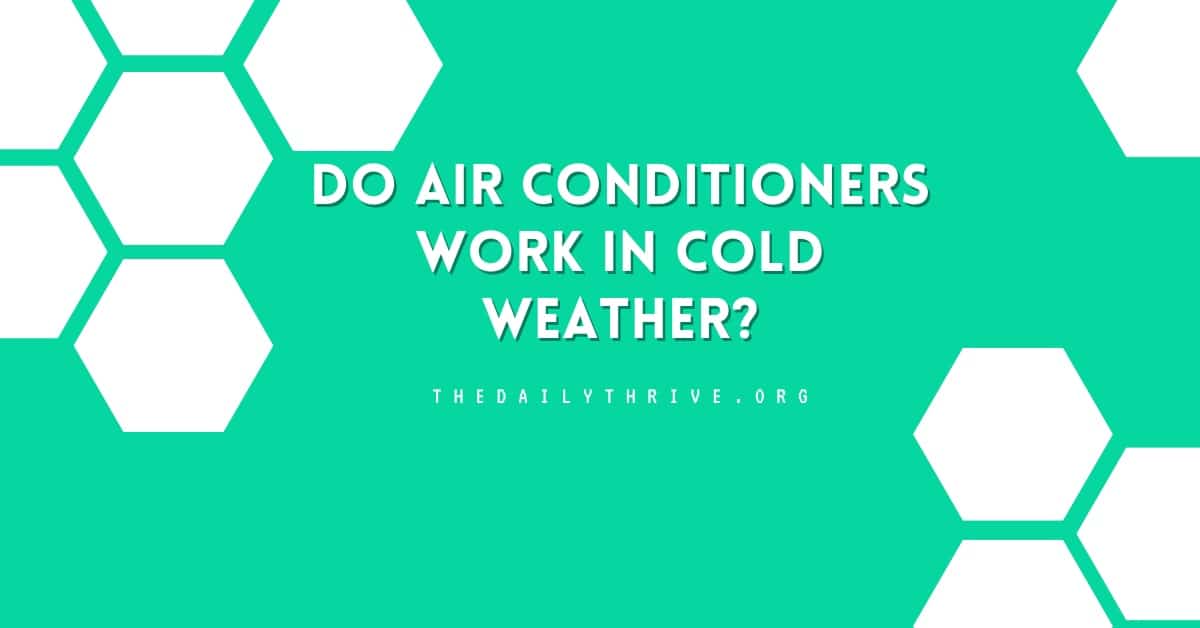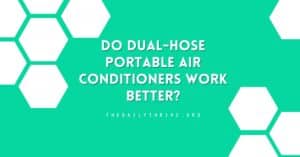There is a lot of curiosity and concern surrounding the topic of operating an air conditioner (AC) when it’s cold outside, but there is no need to worry. With the right knowledge and precautions, running your AC safely and efficiently in colder temperatures is possible.
While modern AC systems are versatile, using them in cold weather, specifically when temperatures dip below 60 degrees Fahrenheit (15 degrees Celsius), poses several risks to their efficiency and longevity. Understanding the implications of running your AC in such conditions and how it affects the system’s components is crucial for maintaining the health of your AC and ensuring optimal indoor comfort.
Why Temperature Matters
At its core, an air conditioner extracts heat from your home’s interior and releases it outdoors, a process that relies heavily on outdoor temperature. The efficiency and safety of this heat exchange process can be significantly affected as temperatures drop, making it crucial to understand the operational dynamics as the seasons change.
However, when the outdoor temperature is already low, the AC’s cooling process can be less efficient for several reasons:
- Low Heat Exchange: In cooler temperatures, the AC’s ability to transfer heat from the inside to the outside is compromised. There’s less heat in the outdoor air for the condenser to release the indoor heat, which can cause the system to operate less efficiently.
- Refrigerant Issues: Air conditioners rely on refrigerant’s proper flow and pressure to cool air effectively. Cooler outside temperatures can affect the pressure and behavior of the refrigerant, potentially leading to improper function or even damage to the system.
- Increased Energy Consumption: When the AC operates in cooler conditions, it may run longer cycles to reach the desired indoor temperature. This inefficiency can lead to unnecessary energy consumption and higher utility bills.
- Potential for Damage: Operating an AC in an environment that is too cold increases the risk of freezing the condensate. This strains the compressor and can lead to frozen evaporator coils, which restrict airflow and cause long-term damage to the unit.
What May Occur If You Operate Your AC During Cold Conditions?
Air conditioners are designed primarily for warm-weather operation. They cool indoor spaces by removing heat from the air. This process involves the refrigerant, which cycles through the system, absorbing indoor heat and releasing it outdoors.
However, when the outside temperature falls, this heat exchange process encounters challenges that can lead to several problems:
Compressor Damage
The efficiency of your AC’s condenser, the unit responsible for releasing absorbed heat to the outdoors, diminishes in colder temperatures.
When the temperature drops, the condenser struggles to effectively expel heat. This difficulty can lead to excessive pressure within the system, potentially damaging the compressor or other vital components.
High pressure strains the system and can trigger safety mechanisms, causing the unit to shut down.
Frozen Coils
Cold weather increases the risk of moisture freezing on the evaporator and condenser coils, leading to ice formation. These coils are essential for the heat exchange process, and when they’re encased in ice, airflow is obstructed. This blockage severely reduces the system’s efficiency and can lead to further damage.

The continuous freeze-thaw cycle may also cause leaks or cracks in the coils due to the expansion and contraction of ice, necessitating costly repairs.
Thickened Lubricant
The compressor, the heart of the AC system, relies on lubricant oil for smooth operation. Cold temperatures can thicken this oil, making it too dense to circulate properly.
Insufficient lubrication increases friction and the potential for overheating in the compressor motor. Over time, this wear and tear can lead to compressor failure, a significant and expensive problem to fix.
Protecting Your AC System in Cold Weather
Given these risks, using your AC in cold weather is not advisable without proper precautions. However, for homes equipped with heat pump systems, which operate as both heating and cooling units, manufacturers have integrated features to mitigate these cold-weather challenges.
If you find yourself needing to use an AC during colder months, here are a few recommendations:
- Invest in a unit designed for all-weather use: Some modern AC systems and heat pumps are designed to function efficiently even in colder temperatures. These units often include features like crankcase heaters to keep the oil at an optimal viscosity and defrost cycles to prevent coil freezing.
- Consider alternative heating solutions: In areas where cold weather is a regular occurrence, relying on your AC for heat may not be the best option. Instead, consider supplemental heating solutions like space heaters, radiant floor heating, or ensuring your home is properly insulated to retain heat.
- Use Alternative Cooling Methods: On cooler days, consider natural ventilation or fans to maintain comfort without putting unnecessary strain on your AC system.
- Regular Maintenance: Ensure your AC is well-maintained, including checking the refrigerant levels and ensuring the system is properly sealed and insulated. This can help mitigate potential issues when operating in borderline temperatures.
- Consider a Programmable Thermostat: A programmable thermostat can help manage your AC use by adjusting the indoor temperature based on the time of day and outside temperatures, enhancing comfort while maximizing energy efficiency.
Running your air conditioner in cold weather can create potential issues that can compromise the system’s efficiency and lead to significant damage. Understanding these risks and taking proactive measures to protect your AC can save you from unnecessary headaches and expenses.






